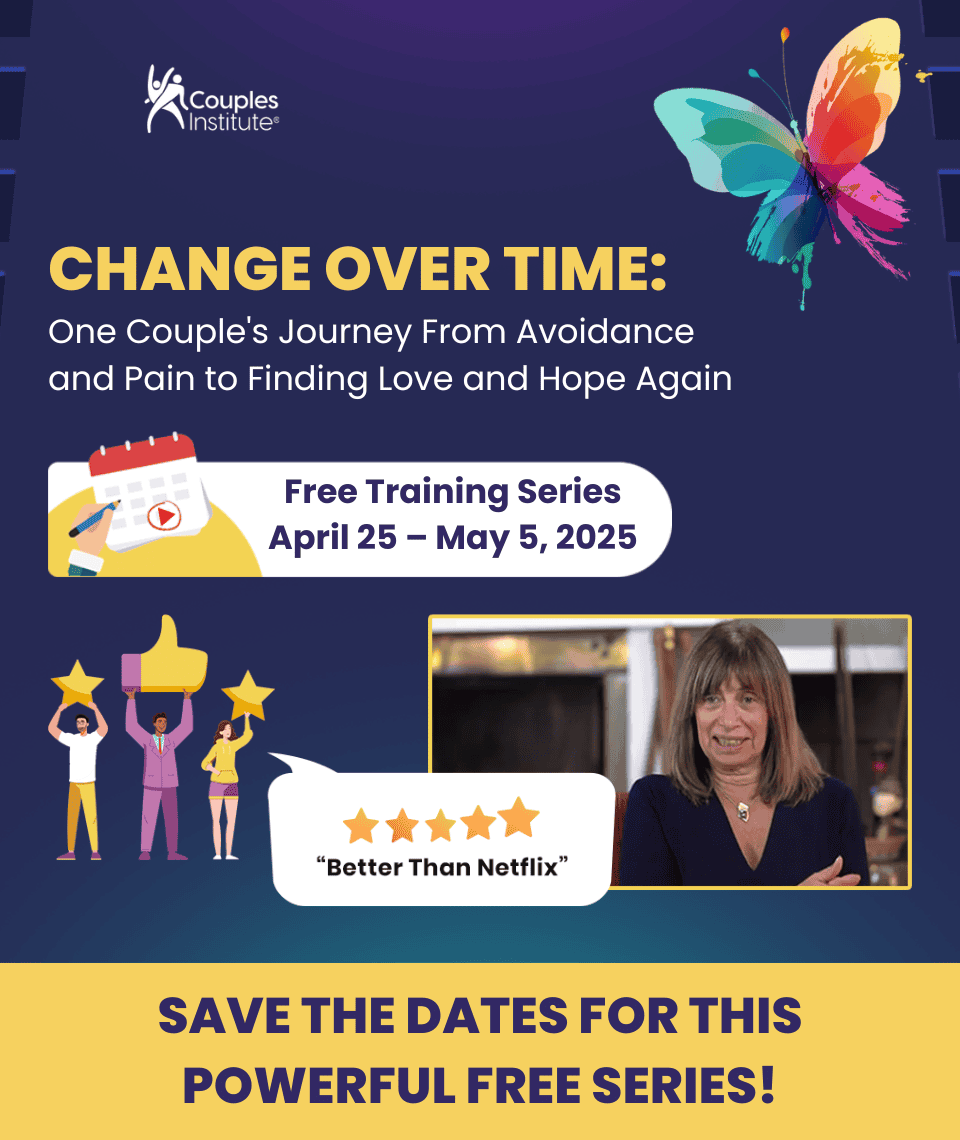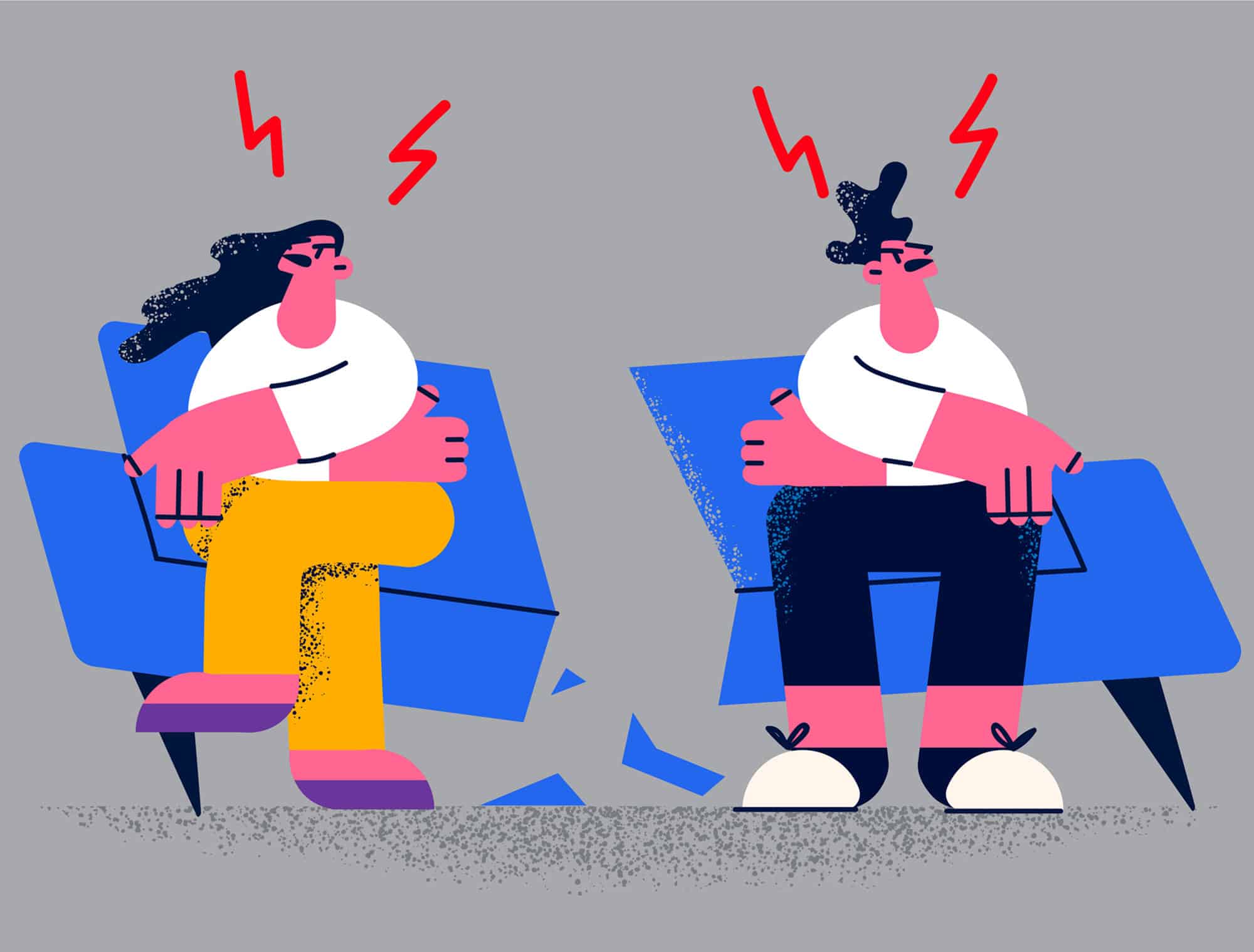Conflict avoidance comes in many forms. Do you recognize these?
1. Some couples avoid so many issues that you feel enormous tension just sitting in the room with them. For years they have shied away from discussing any issues that are potentially high-conflict.
2. These friendly conflict avoiders are warm, gracious and engaging. They just can’t bring any depth into their conversations. In fact, their shadow side is often completely denied. To avoid shame or humiliation, they won’t acknowledge negative feelings or impulses.
3. Passive-aggressive partners rarely set positive goals and won’t initiate much positive action. Self-activation and internal self reflection are either too hard or they never learned in their early years how to recognize and identify feeling states. They avoid saying no directly. Instead they let their behavior say it for them. These partners are known for many unfulfilled promises and commitments.
4. There is another type of couple who have avoided conflict, and their pattern may not be immediately obvious. This is the symbiotic-practicing couple. This couple usually comes to therapy with what appears to be an overt conflict. The “symbiotic stage” partner says, “My partner is gone all the time. They are never home. I fear they are having an affair.” Or “I just don’t understand why the love and attention seems to be gone.” The “practicing stage” partner says, “I feel smothered and trapped.” As they express these dynamics to you, there is tension and intense emotion in the room. The conflict intensifies in the struggle between “don’t leave me/ leave me alone.”
Unless you understand a core dynamic in these relationships, the conflict will be deceiving. These partners have not successfully withstood the intensity that results when both partners are differentiating at the same time. This type of problem typically results from the intersection of three developmental processes.
1. The couple did enjoy an intense positive phase of bonding, falling in love and mutually satisfying symbiosis.
2. When the history is reviewed, you will find brief failed attempts at differentiation by one partner.
3. External sources (work, friends, therapists) have supported and reinforced individuation in one partner.
As a result, these couples are not able to negotiate mutually satisfying solutions to problems. They usually don’t ask about each other’s thoughts, feelings, wants, and desires. Or when one does express a differentiated desire, the other partner will collapse and not express their own. Or they will move to quell what the other person has expressed.
To work successfully with these couples, it helps to establish goals focused in both partners developing more solid differentiation. It is imperative that the individuating partner not be viewed as the “healthier” partner. An early stepping stone is a focus on loss and grief. Each partner is sad about the loss of the early symbiosis. The individuating partner fears another loss – the loss of self – and thus demands independence quite strongly. The “symbiotic” partner is frantically trying to recreate the early stage, loving feelings.
A skilled therapist can help these couples mourn what was lost, activate themselves into full-blown differentiation and provide support as they learn to withstand the intensity of early differentiation.
You’re invited to join us for Change Over Time. This free series unlocks a hidden world, bringing you into the visceral experience of therapy over a year and a half with an intimacy and intensity avoidant couple. One brave therapist put her work on display so you could witness Ellyn teach her how to be in charge, how to confront self-protective defenses, and how to guide both partners through it all.
Watch as this couple is guided through the minefield of honest confrontation with each other and themselves, revealing struggles of intimacy, and ultimately a breakthrough that restores love and hope again.
Mark your calendar for Change Over Time: One Couple's Journey From Avoidance and Pain to Finding Love and Hope Again.
Here’s the LIVE Webinar Schedule for the Free Series:
1. Stuck in Vagueness and Passivity: Turning Intense Reactivity into Emotional Risk and Individual Accountability.
April 28, 9-10:30am Pacific
2. Returning to Love and Hope: Supporting Emerging Connection and Intimacy.
May 2, 11-12:30pm Pacific
3. The Anatomy of Progress: Multiple Breakthroughs for the Client and Therapist (+Q&A)
May 4, 2-3pm Pacific
You’ll see the work. You’ll feel the transformation. And you’ll leave knowing how to lead your most disengaged couples toward connection.
If you're already on our email list you will get emails about this series automatically. If you aren't on our list, you can register here.


 We respect your privacy.
We respect your privacy.




Can’t wait for the webinars.
Looking forward to this.
Is there a sign up for this?
How do we sign up for this?
Count me in, sounds excellent!
thank you for offering this. Will there be replays. I shall have to miss the session on Monday, April 28.
Hi Sharon, yes there will be replays.